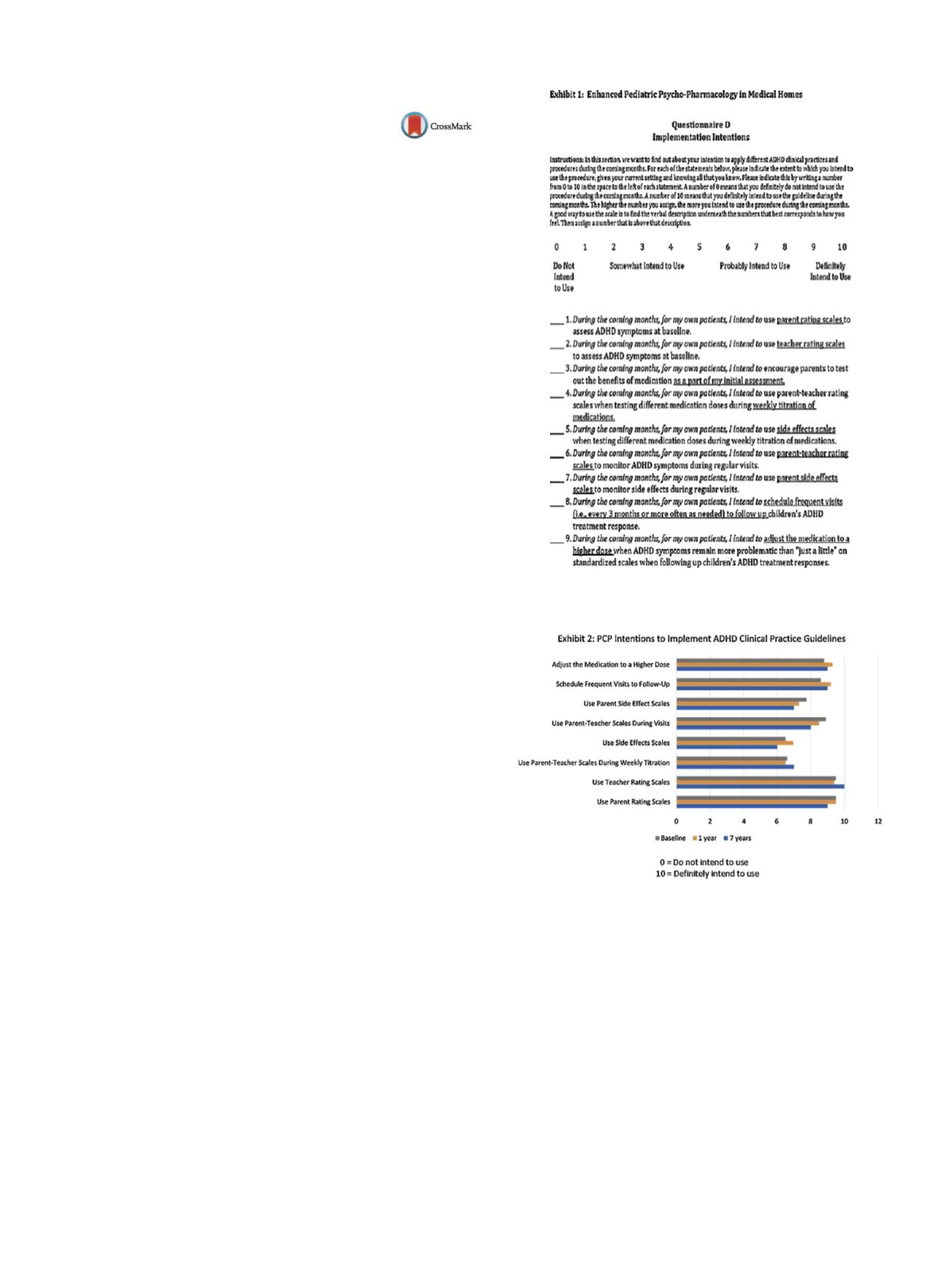

25th European Congress of Psychiatry / European Psychiatry 41S (2017) S583–S644
S617
EV0657
Assessing sustainability of an
intensive primary care training for
children and adolescents with
attention deficit hyperactivity
disorder
L. Wegner (Division Chief Retired Development & Behavioral
Pediatrics)
1 ,∗
,
A. Stiles (M.D) (Sr VP Network Development & Strategic
Affiliations
1), J. Jacobson Vann (PhD MS RN) Associate Director
Clinical Programs
2),
E. Rasmussen (Research Assistant Clinical Programs)
2,
S. Wegner (M.D) (President, Professor Department of Pediatrics)
1 , 21
University of North Carolina at Chapel Hill UNC-CH, , Chapel Hill,
USA
2
AccessCare, , Morrisville, USA
∗
Corresponding author.
Introduction
Adherence to practice guidelines for diagnosing and
treating attention-deficit/hyperactivity disorder (ADHD) by pri-
mary care providers (PCPs) is important for optimizing care for
many children and youth. However, adherence is often low. To
address this problem, we implemented an intensive intervention
in 2009 aimed at improving diagnosis and management of ADHD
among PCPs.
Objectives
The study objective is to assess the sustainability of
intervention-attributable outcomes.
Aims
The study aims are to assess the sustained effect of the
intervention on PCP intentions to implement, attitudes toward, and
obstacles to implement ADHD practice guidelines.
Methods
During November 2009, 48 PCPs from 31 clinical prac-
tices completed a 3-day training, 6 months of biweekly telephone
peer group reinforcement, and baseline questionnaires; follow-up
questionnaires were completed at 12 months. To assess sustaina-
bility, we tracked PCPs and administered the questionnaire in 2016.
Results
Intentions to implement ADHD guidelines remained sta-
ble over seven years, with all mean values ranging from “probably
will” to “definitely will” implement guidelines.
Conclusions
Generally, favorable self-reported intentions (see
Exhibits 1 & 2), attitudes and obstacles to implementing ADHD
guidelines were sustained seven years after the intensive training
and follow-up intervention.
Exhibit 1
Enhanced pediatric psycho-pharmacology in medical
homes.
Exhibit 2
PCP intentions to implement ADHD clinical practice
guidelines.
Disclosure of interest
The authors have not supplied their decla-
ration of competing interest.
http://dx.doi.org/10.1016/j.eurpsy.2017.01.987

















